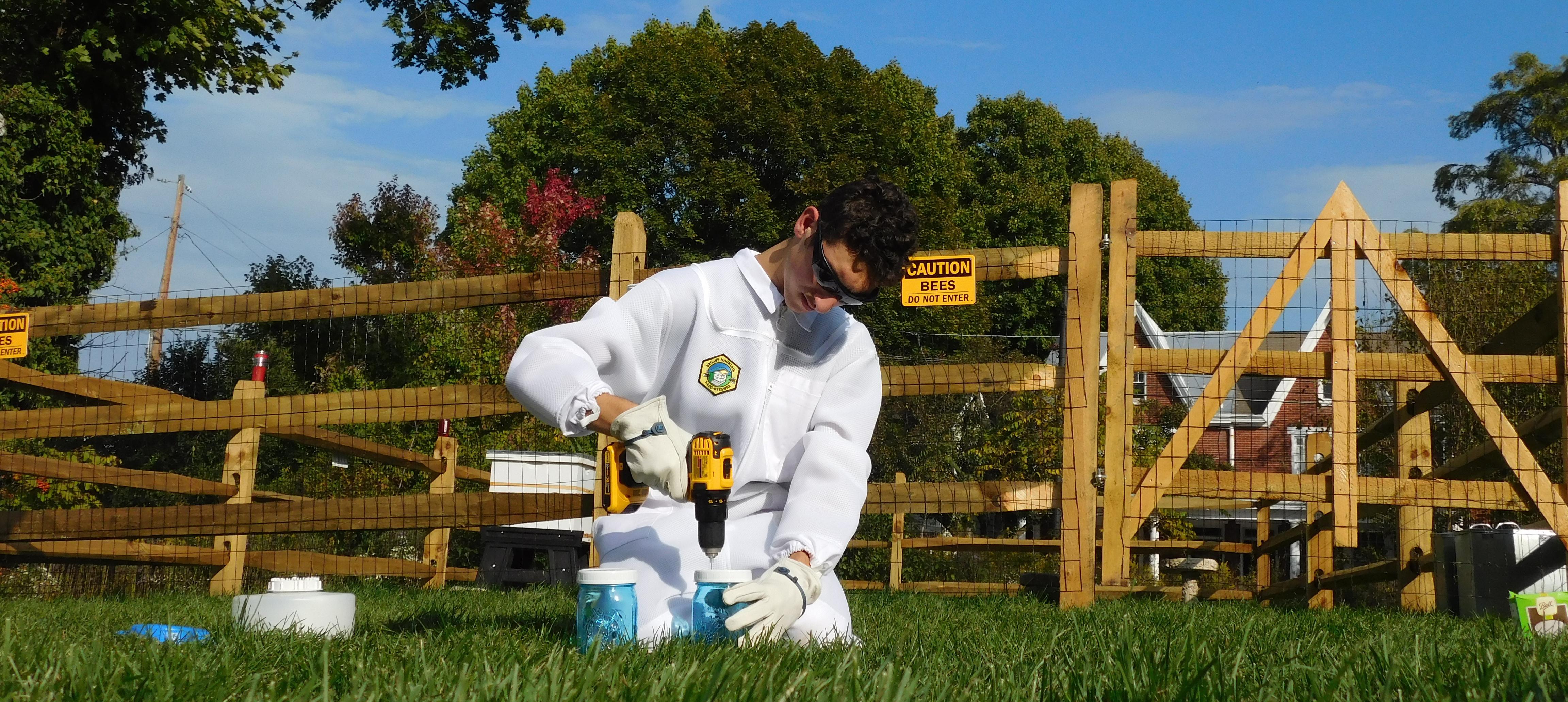Defining Real Problems & Real Solutions

The Dickinson campus and communities beyond are living laboratories for learning about sustainability problems and solutions through direct experience. Dickinson students work with each other, faculty, staff and community members to identify and define problems, understand their causes, develop solutions, and test their ideas.
Our campus bee cooperative that engages students, staff, and faculty in learning about sustainability problems and solutions through the direct experience of beekeeping, honey production and community building.
Dickinson College Organic Farm:
Student farmers, interns and volunteers grow vegetables and raise livestock using sustainable, organic practices on Dickinson's 50-acre farm, supplying the campus and community with nutritious food while building soil health, protecting the Yellow Breeches watershed, and enhancing habitat for native pollinators and other wildlife.
The Alliance for Aquatic Resource Monitoring's student and professional staff work with community organizations across the state of Pennsylvania to provide training and other assistance for monitoring water quality and using monitoring data to protect watersheds.
The Center for Sustainable Living, aka the Treehouse, is a residence hall for students committed to reducing their ecological footprint, building community, and educating their peers about sustainable living.
Our on campus bicycle cooperative provides hands-on programming by faculty, staff & student volunteers to learn the skills and habits of a sustainable mode of transportation.
A four-course interdisciplinary investigation of the people, places and policies of Carlisle, Pennsylvania, the home of Dickinson College. This community-based research mosaic assembles the following courses in Spring 2019. ECON 214/SOC 230: Introduction to Economic Demography (Underwood), HIST 211: Carlisle as Artifact (Pawley), SUST 200/SOC 230: Sustainable and Resilient Communities (Leary), and ECON/HIST/SUST/SOC 550: Independent Research: Carlisle People, Place and Policy (Underwood, Pawley, Leary).
Biodiesel & Biogas Production:
Renewable fuels to power farm equipment and cookware is produced from waste by students at our College Farm. Dickinson is actively working to advance initiatives in anaerobic digestion (AD), a strategy included in the EPA’s food recovery hierarchy that is preferable to landfilling/incineration because it reclaims valuable resources. Keeping food waste from landfills, such as by transforming it into fuel or fertilizer, can save money and reduce environmental impacts.
Reducing Dickinson's Carbon Footprint:
Students collaborate with Campus Operations staff to analyze and recommend actions for reducing Dickinson's greenhouse gas emissions using our Lucid Energy Dashboard.
Campus Buildings & Facilities:
Students learn from observing and studying Dickinson's LEED Gold buildings, solar arrays, and energy efficiency, recycling and composting programs, and by participating in planning new buildings, solar panel installations, and other campus projects.